 |
| By Freepik |
Dietary supplements can’t replace a healthy diet and lifestyle, but as we age, we may need a little boost to stay in top shape.
The bodies of older women don’t absorb or process vitamins and minerals the way they did when they were younger, and require more of some micronutrients to run smoothly, says Alexander Michels, clinical research coordinator for Oregon State University’s Linus Pauling Institute, where scientists study the role of vitamins, minerals and plant chemicals.
Supplements can help prevent deficiencies and improve your health.
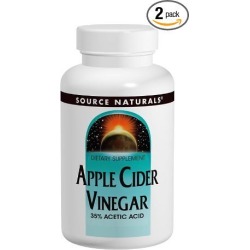 |
| Source Naturals Apple Cider Vinegar 500mg Dietary Supplement - 180 |
Here are the best to try:
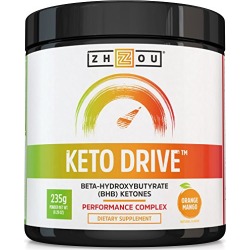 |
| Keto Drive BHB Salts - Exogenous Ketone Performance Complex |
Women 50 and older need 1,200 milligrams a day. It:
- Strengthens bones.
- Prevents osteoporosis and fractures.
- May prevent heart attacks, strokes and certain types of cancer.
Vitamin D
Our bodies make less vitamin D as we age, says Michels. It:
- Helps us absorb calcium.
- May help prevent cancer, diabetes, immune system conditions and osteoarthritis.
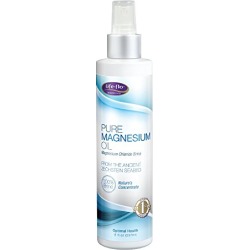 |
| Life-Flo Pure Magnesium Oil | 100% Pure Magnesium Chloride Spray |
This multitasking mineral is one of the most important, says Dr. Todd Born, a naturopathic doctor and certified nutrition specialist in Alameda, Calif. It:
- Helps control muscle and nerve function.
- Regulates blood sugar and pressure.
- Promotes bone growth.
- Is an essential part of protein and DNA synthesis.
Omega-3 fatty acids
These are the most widely used natural supplement in the U.S., according to the National Institutes of Health. They:
May help prevent, treat or lower the risk of heart disease, stroke, breast cancer, arthritis pain and stiffness, diabetes, Alzheimer’s and dementia.
Vitamin B12
“If I have to pick just one vitamin that we need as we age,” B12 is the one, Born says. Older adults have difficulty absorbing B12 from food. It:
- Promotes healthy nerves and blood cells.
- Can help prevent fatigue, weakness, anemia and depression.
- Too little can cause dementia, confusion and memory problems.
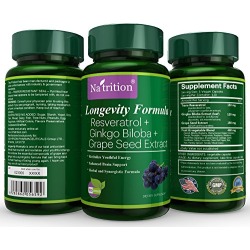 |
| Longevity Formula - Ginkgo Biloba Extract plus Trans-Resveratrol |
Found in red wine, red grape skins, mulberries, blueberries and peanuts, this substance has been found to prolong life in non-human primates, fish, flies, mice and worms. In humans, it combats:
- Heart disease and diabetes.
- Alzheimer’s disease.
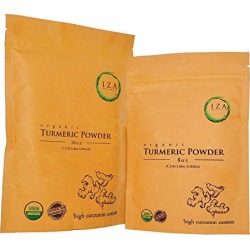 |
| 1 Lb Organic Turmeric Root Powder with 5.8% Curcumin By Iza Organics. |
Turmeric
“One of my favorite botanicals,” says Born. “It seems as if there isn’t anything that Curcuma longa can’t do.” One 2017 study questions turmeric’s promise as a cure-all, but others show the super-spice, the main flavoring for curry, has the potential for treating:
- High blood pressure.
- Rheumatoid arthritis.
- Cancer.
- Diabetes.
- Lupus and arthritis.
- Alzheimer’s disease.
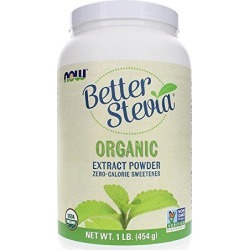 |
| Now Foods Better Stevia Certified Organic Extract Powder 1 Lb |
Grapeseed extract
Found in grape skins and seeds — byproducts of winemaking — the extract is available in capsule, tablet and liquid form. It:
- May prevent cancer.
- Promotes healthy cardiovascular system.
- Reduces swelling.
- Lowers blood pressure.
Coenzyme Q10
With age, your level of this naturally occurring antioxidant, also known as CoQ10, drops. Studies show it may prevent or treat:
- Cardiovascular disease.
- Chronic kidney disease.
Multivitamins
A new study will test whether multivitamins — and cocoa extracts — prevent cancer and cardiovascular disease in women. Multivitamins:
- Reduce cancer rates by 8 percent in men, according to a 2012 study of more than 14,000 men age 50 or older.
- May prevent dementia and stimulate brain function.
Not all supplements are “ready for prime time,” advises Dr. JoAnn Manson, chief of preventive medicine at Harvard University-affiliated Brigham and Women’s Hospital. Consult your doctor before adding supplements. Some have side effects or can interfere with medications.
No comments:
Post a Comment